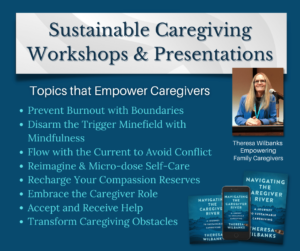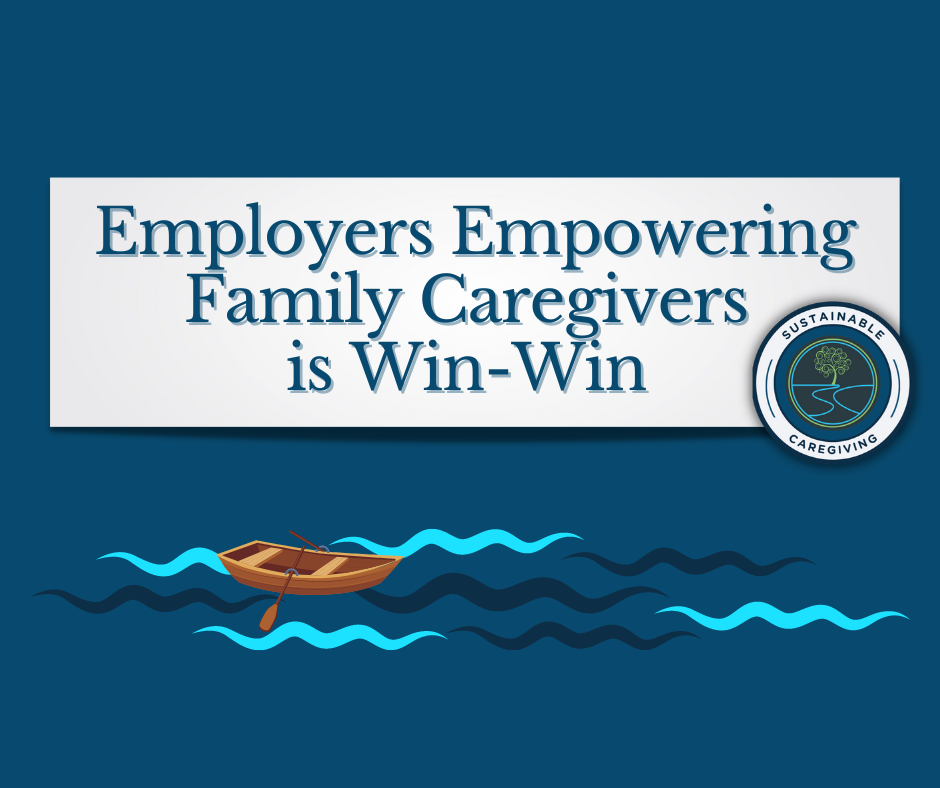Are you an employee who feels unsupported in the workplace as a caregiver? Are you an employer who would like to support the caregivers on your team? You may be wondering why caregiver empowerment is essential. Family caregiving responsibilities can be demanding and time-consuming. Supporting family caregivers in the workplace can positively impact their overall well-being, reduce stress, and allow them to better focus on their work. Employees receiving support are more likely to be productive, engaged, and perform at their best. Here are a few points to consider as an employer or share with your employer as you negotiate for more support:
Reduce turnover
When caregivers have access to resources and support, they can better manage their caregiving responsibilities, reducing the likelihood of unplanned absences or excessive time off work. This can minimize productivity losses and the need for temporary replacements. Caregiver support may allow the employee to continue working when caregiving demands might otherwise require them to leave work altogether. Support reduces turnover and the costs associated with hiring and training new employees.
Minimize Absenteeism and Presenteeism
Family caregiver absenteeism and presenteeism can significantly impact productivity at work and the company’s bottom line. Family caregivers may need to take time off work to fulfill their caregiving responsibilities, such as attending medical appointments or providing support during emergencies. This absenteeism can result in reduced productivity and additional workload for other employees who need to cover the caregiver’s duties. The costs associated with absenteeism include decreased output, missed deadlines, and potential delays in projects or tasks.
Presenteeism is when employees come to work but are not fully engaged or productive due to personal concerns or distractions, such as caregiving responsibilities. Family caregivers may experience stress, fatigue, or emotional strain, impacting their ability to focus and perform at their best. As a result, their productivity and quality of work may suffer, potentially leading to errors, lower efficiency, and decreased overall output.
Reduce healthcare costs
Family caregivers may be more prone to illness or chronic conditions if they neglect their health needs due to their caregiving responsibilities. This can result in increased healthcare costs for caregivers and employers, such as medical expenses and insurance claims. Furthermore, caregivers unable to address their health issues promptly may experience prolonged absences from work, further impacting productivity.
Facilitate work-life balance
Empowered caregivers learn skills and strategies to manage crises and everyday challenges with reduced stress enabling them to balance work and life obligations better and prioritize their well-being.
Create a compassionate corporate image
Employers that prioritize and support family caregivers can build a reputation as compassionate and family-friendly workplaces. This can attract top talent, improve the organization’s public image, and strengthen relationships with customers, clients, and the community.
Improve the bottom line
By providing access to caregiver support resources and promoting a culture of understanding and empathy, employers can better support caregivers, enhance productivity, and ultimately improve the company’s bottom line.
I would love to speak at your workplace and empower your staff and colleagues to navigate their caregiving journey confidently.
Workshop & Presentation topics include:
- Prevent Burnout with Boundaries
- Disarm the Trigger Minefield with Mindfulness
- Reimagine & Micro-dose Self-Care
- Recharge Your Compassion Reserves
- Embrace the Caregiver Role
- Accept and Receive Help
- Flow with the Current to Avoid Conflict
- Transform Caregiving Obstacles
- Venting to Release the Pressure
- Process Caregiving’s Complexity through Journaling
- The Power of Forgiving
- Planning for the Worries

The Navigating the Caregiver River Series covers all 12 Sustainable Caregiving Strategies in three 1-hour sessions.
Sustainable Caregiving: Prevent and Recover from Burnout
We discuss four strategies to prevent and recover from caregiver burnout. The strategies include setting boundaries, disarming the trigger minefield, cultivating compassion, and reimagining self-care.
Sustainable Caregiving: Reimagine Control
We discuss four strategies to help us reimagine control while caregiving. The strategies include accepting the role, accepting help, reducing conflict, and transforming obstacles.
Sustainable Caregiving: Manage the Emotions
We discuss four strategies to help us manage complicated caregiver emotions. The strategies include venting, journaling help, forgiving, and planning for the worries.
The Construct Your Empowered Caregiver Support System presentation provides the following benefits:
- Become empowered with the Sustainable Caregiving Strategies
- Prevent caregiver burnout
- Reclaim and regain control
- Prioritize caregiver well-being
- Navigate your caregiving journey with confidence
- Maximize memories and minimize regret
When we experience a significant life change, our support network often changes, so it isn’t surprising that we need to rethink and recreate our support system when we step, or fall headfirst, into a caregiving role. When we think of a support system, we often think of people. While people can be an essential part of our caregiver support system, we need a more varied and versatile system that doesn’t solely rely on the physical and emotional availability of others.
We explore the support system components, including the foundation, cornerstone, 12 Sustainable Caregiving Strategies, and how routines connect the components. We’ll troubleshoot the culprits that can destabilize our system and discuss how to begin construction on a stable caregiver support system that will empower us on our caregiving journey and beyond.
Schedule Theresa Wilbanks to speak on caregiving and empower the caregivers in your workplace or community with the 12 Sustainable Caregiving Strategies.
Advice offered is for general information only; please contact your healthcare team, legal or financial advisors to guide your particular situation.

